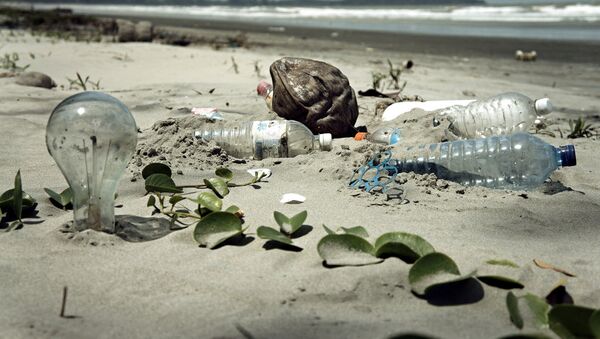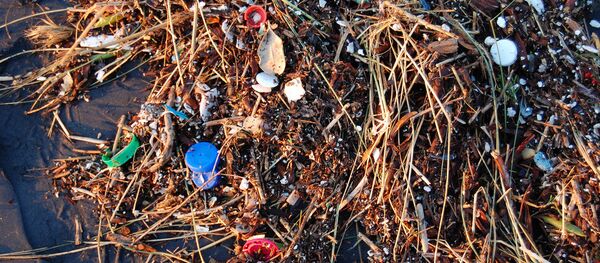Dr. Debora Iglesias-Rodriguez, biological oceanographer at National Oceanography Centre at Britain's University of Southampton, said in an interview that, "nanoparticles of plastic getting into marine animals and the food chain are affecting fish fertility rates, and this affects food security and coastal populations."
Decomposing plastic is concentrated in enormous spiraling currents called "gyres" that exist in every ocean. The North Pacific Subtropical Gyre, dubbed "the Great Pacific Garbage Patch," is twice the size of Texas, and located near the US West Coast, contains an "alarming amount" of plastic garbage.
This is not your ordinary plastic trash. As it makes its way through the ocean, it decomposes to the molecular level, and is unavoidably consumed by fish at the rate of 12,000 to 24,000 tons per year. According to research by Miriam Goldstein at Scripps Institution of Oceanography at the University of California, San Diego, eating fish whose tissues contain plastic increases the risk of cancer and other health issues in humans.
Christmas! Pacific Garbage Patch Kids! What a great gyre! pic.twitter.com/CC74OMprRA
— marion kinder (@otherhalfling) 4 декабря 2015 г.
Truthout notes that decomposed plastic fits into a larger complex picture of ocean pollution. As science journalist Alanna Mitchell puts it, "Every second breath you take comes from the oxygen produced by plankton." Yet phytoplankton counts are dropping. That statistic, along with overfishing and the melting of ice at the poles, affects ocean salinity and, in consequence, accelerates climate change. Dr. Wallace J. Nichols, a research associate at the California Academy of Sciences, however, believes that "we could have a healthy ocean in 50 years if we make some bold moves." Those moves would necessarily include "a cleaner, more responsible set of actions for how we get energy from the ocean and how we use them as a source of food."





